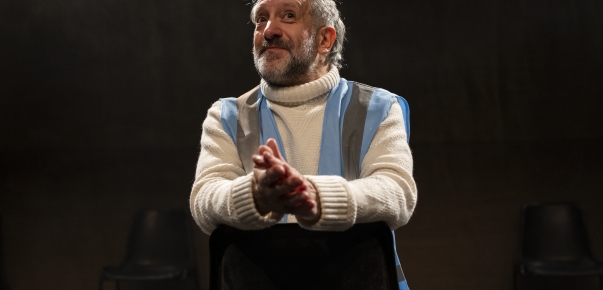The First Child of Science: In Conversation with Louise Brown
9 May 2024

Next month is the world premiere of A Child of Science, telling the story of the discovery of IVF, the pioneering scientists involved, and the hundreds of women who sacrificed so much to make it a reality.
The world’s first IVF child was Louise Brown, whose parents both came from Bristol and where she still lives today. We’re really honoured that she will be joining us for a Stage Talk on Wed 26 Jun.
Ahead of the opening of the show, Louise chatted to us about her unique perspective on the story of a medical miracle...
You were arguably the most famous baby in the world. How aware of that were you while growing up? What did your parents do to keep life normal for you?
Things were very hectic in the first few years of my life and my parents travelled around the world with me, including Japan and the USA. My first real awareness was when I was four; my parents sat me down and showed me film of my birth and told me that they needed help from Robert Edwards and Patrick Steptoe for me to be born. I didn’t really fully understand what IVF was, but learned from listening to them give media interviews. Once I went to school, they took me out of the spotlight as much as they could and things were fairly normal.
You are proud of your Bristol roots – does it feel important to you that Bristol is going to be the first place to tell this story on stage?
Yes, my parents were also proud Bristolians. My Mum, Lesley, kept many things from the early days, including the letter telling her she was pregnant. These were donated to Bristol Archives when she died and there is a little display at M Shed. Although Cambridge and Oldham played important parts in the story, Mum and Dad travelled from Bristol for the treatment. I came home at 12 days old and have lived here all my life. I’m looking forward to the play at the Bristol Old Vic and it’s great that the city has another world first.
The play focuses on the story of Jean Purdy, Patrick Steptoe and Robert Edwards – do you have any personal memories of them?
Steptoe and Edwards were like grandfathers to me growing up. Patrick died when I was quite young; I last saw him when we did the Wogan show together, and he held my hand alongside other babies that he and Bob had brought into the world at Bourn Hall Clinic in Cambridgeshire, which they opened after my birth. I am still an Ambassador for them. Bob Edwards I was able to get to know as an adult. He came to my wedding and was the first person I rang when I got pregnant after my parents. I knew him and his family as friends. Unfortunately, Jean Purdy died at the age of 39 and I did not know her. I was proud to unveil a new headstone for her a few years ago honouring her as the world’s first embryologist and Mum was very fond of her. They were pioneers, who changed the world through their work.
When you had your own children, did that give you a new perspective on everything your parents went through?
I am lucky that I was able to conceive naturally and I can not imagine what life would be like without my two boys. Certainly having your own children makes you appreciate your parents. My Mum was around to be a wonderful babysitter for my first son. She loved children and I’m convinced her determination and desire to have a child played a big part in the success back in 1978. She never gave up through the setbacks. They were just an ordinary couple from Bristol who ended up making history because they wanted a child so much.
What is the importance of telling this story now? Do you think it’s still important to keep awareness of fertility issues in the public consciousness?
The problems my Mum and Dad faced are the same as those seeking fertility help today. It is not easily available in all communities – Mum and Dad had to travel from Bristol to Oldham. Many people can not afford the treatment – Dad was only able to pay for one operation because of a pools win. People who are childless face a stigma and questioning on why they have not had a family. Across the world the rules are different on what help people can access. It is also an important story on how science and pioneering scientists can help the world progress. There are now over 10 million babies in the world that are now here as a result of science.
A Child of Science plays 5 Jun – 6 Jul 2024


